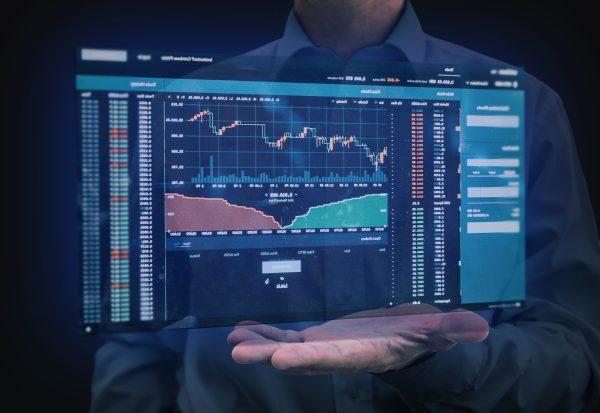Forex trading, known as foreign exchange trading, allows individuals to participate in the world’s largest and most liquid financial market. With a daily trading volume that exceeds $5 trillion, forex trading provides an opportunity to speculate on currency price movements and potentially profit from them. However, it is crucial to grasp the market’s intricacies, comprehend the associated risks, and take the necessary steps to begin.

This article serves as a comprehensive guide to help you understand forex trading, how it works, ways to generate profits, risks involved, and essential steps for beginners.
What Is Forex Trading?
Forex trading involves buying and selling currencies, typically in pairs. Currencies have relative values, and traders aim to profit from fluctuations in exchange rates. For instance, traders might buy the EUR/USD currency pair, where they purchase euros while simultaneously selling US dollars. Exchange rates represent the ratio of one currency to another.
How Does Forex Trading Work?
Forex trading operates based on speculating on future currency price directions. Traders analyze economic indicators, geopolitical events, and market sentiment to predict currency movements. When initiating a trade, traders borrow one currency to purchase another. They then close the trade at a later time, aiming to profit from the change in exchange rates.
Making Money from Forex Trading
Profits in forex trading stem from accurately predicting currency price movements. Buying a currency pair and witnessing a price increase results in a profitable trade when closed. Conversely, if the price decreases, traders incur losses. The extent of profit or loss depends on trade size and the magnitude of exchange rate fluctuations.
Risks Involved in Forex Trading
Forex trading entails risks that need to be understood and managed for long-term success. The following risks are associated with forex trading:
a. Market Volatility: Currency prices can exhibit high volatility, experiencing rapid and substantial fluctuations. Sudden market movements can lead to significant losses without proper caution and risk management.
b. Leverage: Forex brokers often offer leverage, enabling traders to control larger positions with a relatively small amount of capital. While leverage can amplify profits, it also magnifies losses, necessitating careful risk management.
c. Commissions and Fees: Forex brokers impose commissions and fees for each trade executed. These costs can impact overall profitability, so it is crucial to consider them when assessing potential gains.
d. Scams: The forex market attracts fraudulent entities, necessitating caution and the selection of reputable brokers. Awareness of potential scams and careful choice of trustworthy partners are crucial for safeguarding investments.
Getting Started with Forex Trading
To embark on your forex trading journey, follow these steps:
a. Conduct Thorough Research: Gain a solid understanding of forex trading concepts, strategies, and risk management techniques. Familiarize yourself with fundamental and technical analysis, trading terminologies, and market dynamics.
b. Choose a Reputable Broker: Select a trustworthy broker by considering factors such as regulation, fund security, trading platforms, customer support, and fees. Read reviews and compare brokers to make an informed decision.
c. Open a Trading Account: Once you’ve chosen a broker, open a trading account by providing necessary identification documents, completing registration forms, and depositing funds into your account.
d. Develop a Trading Plan: Create a well-defined trading plan that outlines financial goals, risk tolerance, preferred trading strategies, and parameters for entering and exiting trades. A trading plan helps maintain discipline and mitigate impulsive decisions.
e. Practice with a Demo Account: Most brokers offer demo accounts, allowing you to trade in a simulated environment using virtual funds. Utilize this opportunity to practice your trading strategies, gain experience, and build confidence before risking real capital.
f. Start Trading: Once you feel comfortable and confident, commence trading with small positions. Monitor and analyze market conditions, diligently apply your trading plan, and gradually increase trade sizes as you gain experience and achieve consistent profitability.
Overall, Forex trading presents an exciting opportunity to engage in the world’s largest financial market and potentially profit from accurately predicting currency price movements. However, it is essential to approach forex trading with knowledge, caution, and risk management practices. By understanding how the market operates, considering associated risks, and following the necessary steps to begin, you can embark on your forex trading journey with confidence and strive for long-term success. Continuous learning, adaptability, and discipline are key elements for navigating the dynamic world of forex trading.






